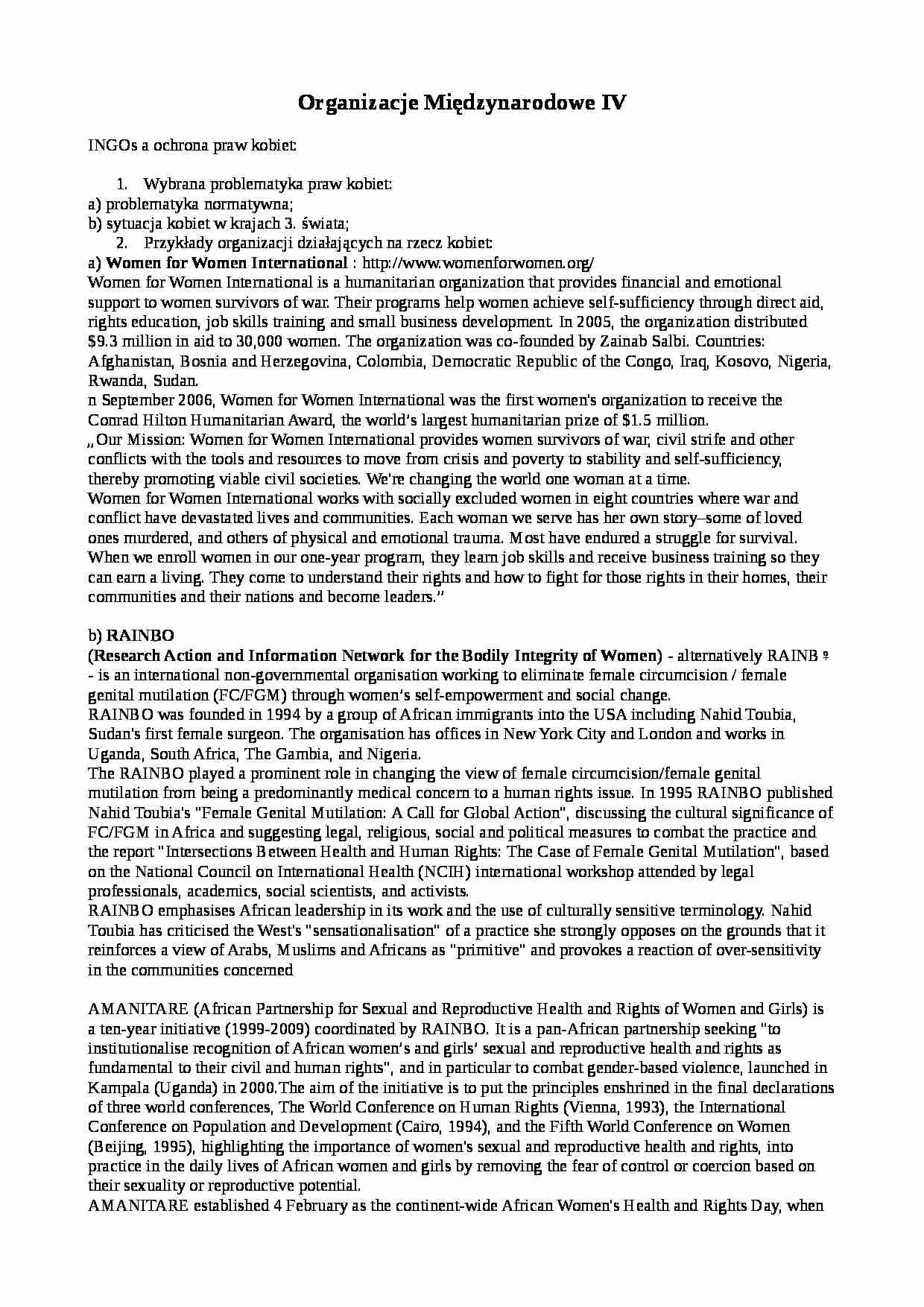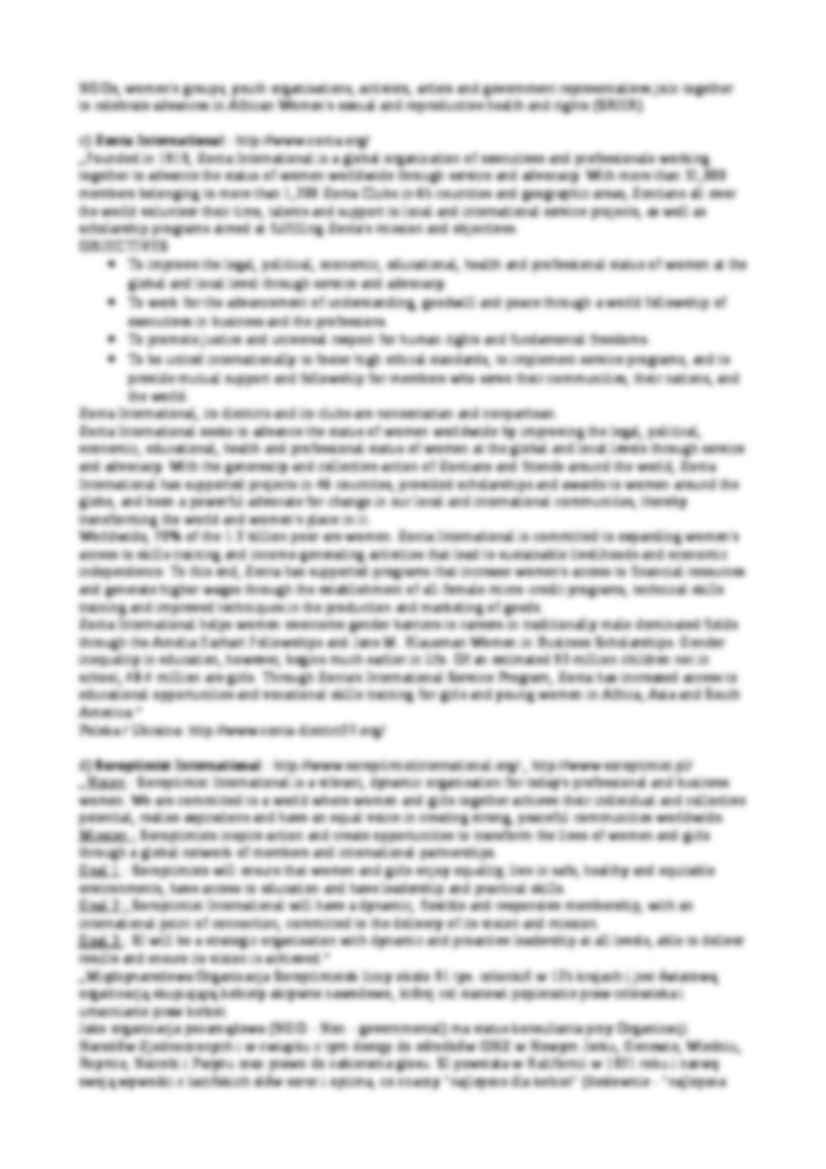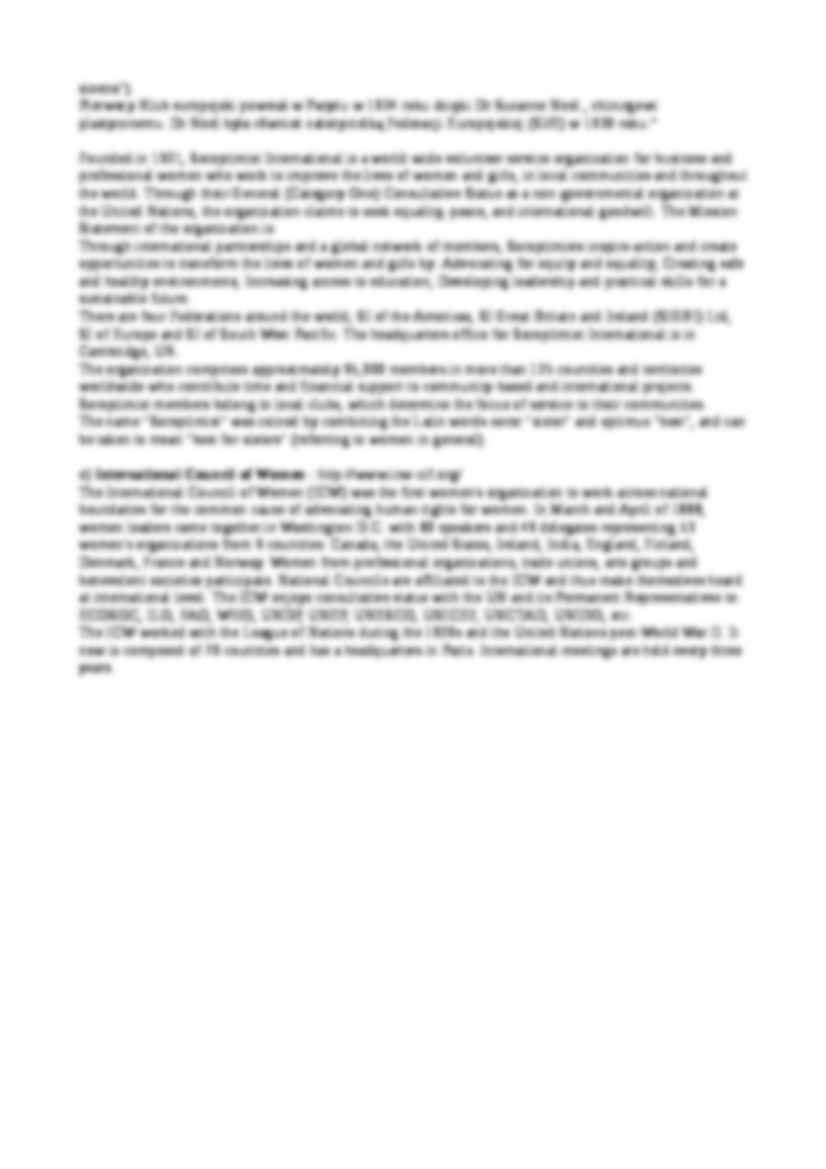Organizacje Międzynarodowe IV
INGOs a ochrona praw kobiet:
Wybrana problematyka praw kobiet:
a) problematyka normatywna;
b) sytuacja kobiet w krajach 3. świata;
Przykłady organizacji działających na rzecz kobiet:
a) Women for Women International : http://www.womenforwomen.org/
Women for Women International is a humanitarian organization that provides financial and emotional support to women survivors of war. Their programs help women achieve self-sufficiency through direct aid, rights education, job skills training and small business development. In 2005, the organization distributed $9.3 million in aid to 30,000 women. The organization was co-founded by Zainab Salbi. Countries: Afghanistan, Bosnia and Herzegovina, Colombia, Democratic Republic of the Congo, Iraq, Kosovo, Nigeria, Rwanda, Sudan.
n September 2006, Women for Women International was the first women's organization to receive the Conrad Hilton Humanitarian Award, the world's largest humanitarian prize of $1.5 million. „Our Mission: Women for Women International provides women survivors of war, civil strife and other conflicts with the tools and resources to move from crisis and poverty to stability and self-sufficiency, thereby promoting viable civil societies. We're changing the world one woman at a time.
Women for Women International works with socially excluded women in eight countries where war and conflict have devastated lives and communities. Each woman we serve has her own story-some of loved ones murdered, and others of physical and emotional trauma. Most have endured a struggle for survival.
When we enroll women in our one-year program, they learn job skills and receive business training so they can earn a living. They come to understand their rights and how to fight for those rights in their homes, their communities and their nations and become leaders.”
b) RAINBO
(Research Action and Information Network for the Bodily Integrity of Women) - alternatively RAINB♀ - is an international non-governmental organisation working to eliminate female circumcision / female genital mutilation (FC/FGM) through women's self-empowerment and social change.
RAINBO was founded in 1994 by a group of African immigrants into the USA including Nahid Toubia, Sudan's first female surgeon. The organisation has offices in New York City and London and works in Uganda, South Africa, The Gambia, and Nigeria.
The RAINBO played a prominent role in changing the view of female circumcision/female genital mutilation from being a predominantly medical concern to a human rights issue. In 1995 RAINBO published Nahid Toubia's "Female Genital Mutilation: A Call for Global Action", discussing the cultural significance of FC/FGM in Africa and suggesting legal, religious, social and political measures to combat the practice and the report "Intersections Between Health and Human Rights: The Case of Female Genital Mutilation", based on the National Council on International Health (NCIH) international workshop attended by legal professionals, academics, social scientists, and activists.
(…)
… kobiet. Jako organizacja pozarządowa (NGO - Non - governmental) ma status konsultanta przy Organizacji Narodów Zjednoczonych i w związku z tym dostęp do ośrodków ONZ w Nowym Jorku, Genewie, Wiedniu, Rzymie, Nairobi i Paryżu oraz prawo do zabierania głosu. SI powstała w Kalifornii w 1921 roku i nazwę swoją wywodzi z łacińskich słów soror i optima, co znaczy "najlepsze dla kobiet" (dosłownie - "najlepsza…
… recognition of African women's and girls' sexual and reproductive health and rights as fundamental to their civil and human rights", and in particular to combat gender-based violence, launched in Kampala (Uganda) in 2000.The aim of the initiative is to put the principles enshrined in the final declarations of three world conferences, The World Conference on Human Rights (Vienna, 1993), the International…
… with the UN and its Permanent Representatives to: ECOSOC, ILO, FAO, WHO, UNDP, UNEP, UNESCO, UNICEF, UNCTAD, UNIDO, etc. The ICW worked with the League of Nations during the 1920s and the United Nations post-World War II. It now is composed of 70 countries and has a headquarters in Paris. International meetings are held every three years. …
... zobacz całą notatkę






Komentarze użytkowników (0)